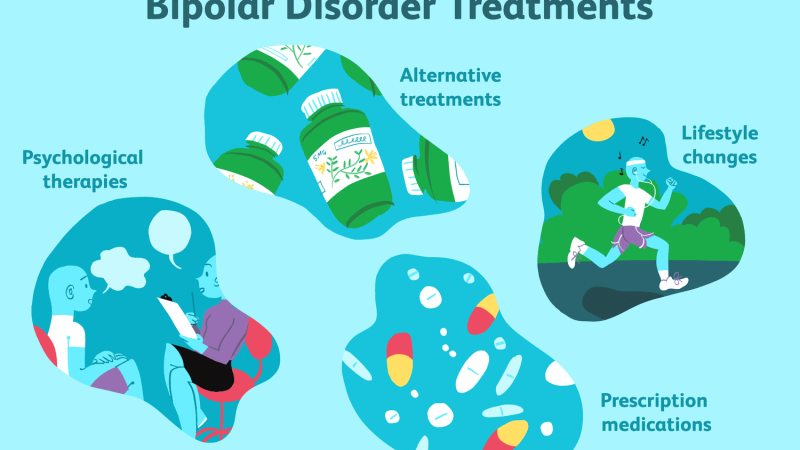The pharmaceutical sector represents one of the most strategically important industries for national health security, economic diversification, and innovation. As the United Arab Emirates (UAE) continues its pursuit of sustainable development and reduced dependency on oil-based revenues, the local manufacturing of pharmaceuticals presents an attractive avenue for investment and policy attention. The comprehensive assessment of pharmaceutical manufacturing feasibility in the UAE, addressing key market drivers, regulatory landscape, operational considerations, and the role of feasibility study consulting services in supporting strategic decisions.
Growing Demand and Strategic Importance
The UAE is rapidly emerging as a hub for pharmaceutical trade and healthcare innovation in the Middle East. With a population exceeding 10 million, a robust medical tourism sector, and a growing prevalence of chronic diseases such as diabetes and cardiovascular conditions, the domestic demand for pharmaceutical products continues to rise. According to the UAE Ministry of Health and Prevention, the country’s pharmaceutical market is expected to surpass AED 25 billion by 2030, driven by increased government spending on healthcare, aging demographics, and private sector investments.
In this context, local pharmaceutical manufacturing becomes not only economically appealing but also strategically vital. A well-executed feasibility assessment can offer valuable insights into market readiness, cost-efficiency, and policy incentives available for investors. This is where feasibility study consulting services play a critical role by providing detailed evaluations that reduce risks and support evidence-based decisions for stakeholders aiming to enter or expand within the UAE’s pharmaceutical sector.
Government Policies and Vision 2031
The UAE government has positioned healthcare and pharmaceutical manufacturing at the center of its strategic vision. Under the “UAE Centennial 2071” and the more immediate “UAE Vision 2031,” the country aims to boost local production capabilities, enhance national resilience against global supply chain disruptions, and attract foreign direct investment into high-tech industries.
Several incentives are already in place to encourage pharmaceutical manufacturing. These include:
- Tax exemptions and free zone benefits.
- Fast-track regulatory approvals for local producers.
- Public-private partnerships in healthcare infrastructure development.
- The introduction of compulsory local tendering preferences for UAE-made pharmaceuticals.
Such policies underline the importance of a carefully planned and professionally executed feasibility study to determine the viability of setting up a pharmaceutical production unit in the UAE. Businesses and investors must align their plans with national regulatory frameworks, capacity building objectives, and sustainability guidelines.
Market Entry Barriers and Challenges
Despite the promising outlook, pharmaceutical manufacturing is a complex and capital-intensive industry that demands strict adherence to regulatory compliance, continuous innovation, and quality assurance. Market entrants in the UAE face several challenges that necessitate in-depth analysis before committing resources.
Key challenges include:
- High capital expenditure (CAPEX) for establishing GMP-compliant facilities.
- Access to skilled labor and technical expertise.
- Sourcing of raw materials and active pharmaceutical ingredients (APIs), which are mostly imported.
- Intellectual property rights enforcement and patent-related legal complexities.
- Competitive pressure from multinational brands and regional low-cost manufacturers.
Here, feasibility study consulting services become indispensable for evaluating not just the financial viability but also the regulatory, technical, and operational aspects of launching or scaling pharmaceutical operations in the UAE. These services help identify gaps, recommend strategies to overcome barriers, and estimate return on investment (ROI) under different market scenarios.
Technological Capabilities and Infrastructure
The UAE has made significant strides in upgrading its industrial and technological infrastructure to support high-value manufacturing sectors. Industrial zones such as Dubai Science Park, Khalifa Industrial Zone Abu Dhabi (KIZAD), and the upcoming Pharma City in Dubai offer state-of-the-art facilities tailored for life sciences and pharmaceutical ventures.
These zones provide:
- Ready-built lab spaces and clean rooms.
- Proximity to research institutions and hospitals for clinical trials.
- Access to international logistics hubs such as Jebel Ali Port and Abu Dhabi Airport.
- Enhanced IP protection and custom services for imports and exports.
Investors considering pharmaceutical manufacturing must weigh the advantages of locating operations within these specialized zones against potential cost premiums. A thorough feasibility assessment can help determine the best location strategy, technology adoption needs, and the scalability of operations based on long-term business goals.
Local Talent and Workforce Development
Another crucial element of feasibility assessment is workforce availability and skills development. While the UAE boasts a multinational and skilled labor pool, the pharmaceutical industry requires specialized competencies in areas such as bioengineering, pharmacovigilance, regulatory affairs, and sterile manufacturing practices.
The government is addressing this through educational reforms and industry-academic partnerships aimed at upskilling Emiratis and expatriate professionals. Nonetheless, any potential investor must plan for talent acquisition and development costs, onboarding of expatriates, and potential partnerships with local universities or technical institutions.
Feasibility study consulting services often include a workforce analysis to estimate labor costs, availability, and training requirements—helping firms to align HR strategy with business goals and compliance needs.
Regulatory Framework and Compliance
The UAE’s pharmaceutical manufacturing sector is regulated by the Ministry of Health and Prevention (MOHAP), the Department of Health – Abu Dhabi (DoH), and Dubai Health Authority (DHA). Compliance with international standards such as WHO-GMP, US FDA, and EMA is increasingly expected for both domestic consumption and export eligibility.
Feasibility studies must therefore account for the regulatory roadmap including:
- Facility design approval.
- Clinical trial requirements (if applicable).
- Licensing procedures.
- Product registration timelines.
- Post-marketing surveillance and pharmacovigilance obligations.
A sound regulatory strategy, guided by expert consulting services, can significantly shorten time-to-market and avoid costly delays. Feasibility study consulting services with regulatory expertise can help streamline the approval process and ensure that production plans are aligned with current and evolving legal standards.
Financial and Economic Considerations
From a financial perspective, pharmaceutical manufacturing in the UAE offers long-term benefits, especially when considering the potential for GCC-wide exports, government procurement contracts, and technology transfer opportunities. However, the high setup cost means ROI may only be realized over a medium to long-term horizon.
A detailed feasibility study should incorporate:
- Initial and ongoing CAPEX and OPEX.
- Break-even analysis and sensitivity modeling.
- Local market pricing dynamics and competition mapping.
- Tariff and non-tariff barriers in export markets.
- Potential for contract manufacturing or joint ventures.
The economic viability of a project hinges on realistic forecasting and benchmarking against regional and international peers. By leveraging feasibility study consulting services, companies can develop financial models tailored to the UAE’s unique cost structures and policy incentives.
Sustainability and ESG Considerations
Sustainability has become a key determinant in the feasibility of pharmaceutical manufacturing projects. The UAE is committed to reducing its environmental footprint and encouraging green manufacturing practices as part of its Net Zero 2050 strategy.
Feasibility assessments today must include:
- Energy efficiency of proposed facilities.
- Waste management strategies for pharmaceutical by-products.
- Compliance with environmental regulations.
- Opportunities for renewable energy integration.
- ESG (Environmental, Social, Governance) reporting obligations.
Incorporating sustainability into project design not only ensures regulatory compliance but also enhances brand value and access to green financing options. Forward-thinking investors use feasibility study consulting services to build ESG-compliant business models that attract both government support and socially responsible investors.
Pharmaceutical manufacturing in the UAE offers a compelling investment opportunity backed by strategic government support, rising market demand, and advanced infrastructure. However, the pathway to success in this high-stakes industry requires meticulous planning, expert guidance, and a deep understanding of the local regulatory and operational landscape.
A professional feasibility assessment is not just a preliminary formality but a strategic imperative. Investors and companies seeking to establish or expand pharmaceutical manufacturing in the UAE are strongly encouraged to engage with expert feasibility study consulting services. These services provide the critical insights and data-driven frameworks necessary to navigate risks, capitalize on opportunities, and align with the UAE’s vision for a diversified, knowledge-based economy.









